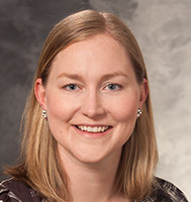Advice and Suggestions to Questions about Career in Neurocritical Care (ASQC): Life Versus Academia
Published on: February 26, 2020
Do you have questions regarding your professional life? Is there a conundrum at work that requires an outside perspective?
The Trainee Section and Women in Neurocritical Care (WINCC) Section have teamed up to publish a new column in Currents to serve your professional advice needs. Submit questions to winccmentorship@gmail.com, and we will get them answered by a seasoned advisor.
Dear Currents,
I am in a long distance relationship, and my partner has a job he cannot leave in an area far from any academic centers. My priority is to build a family. I love teaching and would like an academic job down the line. Are locums or consultant jobs looked down upon by academic center directors?
Sincerely,
Life Versus Academia
Dear Life Versus Academia,
First, I would like to acknowledge that it must be frustrating to feel that success in your personal life is at odds with success in your career. Delayed gratification has become so normalized in medical training that it can be surreal when it is time to start living your life. During residency, I was advised if I waited until it was a “good time” in my career to have kids, I would never have them. Your time to start a family is finite and should be appropriately prioritized.
Compared to years past, I believe that it is increasingly possible to successfully pivot to academia from locums tenens positions or a job in the private sector, as people are more understanding of the realities of juggling two careers, particularly when one of those careers involves a smaller subspecialty like neurocritical care.
That being said, the “easiest” path to a career in academics is to never leave academia. You will need to be very strategic in planning your next steps to ensure your temporary geographic limitations do not derail your ultimate goal of a career in academic medicine.
I personally believe that a locums job in which you were actively practicing in the neurocritical care unit would better lend itself to a transition to academic neurocritical care than a non-clinical role like consulting. However, it will not be enough to simply practice neurocritical care. You will also need to make building your CV a priority, while keeping in mind that the things prized on an academic CV are unique.
A few ways to potentially build your academic CV while working in private practice include:
- Travel to serve as an ENLS trainer
- Present a CME lecture at a local hospital, your specific training institution, etc.
- Submit proposals for lectures to state, regional and/or national organizations
- Start a journal club for neurocritical care unit nurses
- Educate local EMS agencies on updates in stroke, etc.
- Continue to collaborate on research that you may have begun during training
- Network and maintain your relationships with people within academia by attending regional and/or national meetings
- Volunteer for committees within regional and/or national societies
If you have a specific academic institution in mind where you would eventually want to work, consider reaching out to the chair/division chief now to explain your dilemma and see if there are any specific expectations you would be expected to fulfill during your time in the private sector and gauge their opinion of your various work options. However, you should be prepared for the possibility that some institutions would not consider hiring a faculty member coming from a locums or consulting position. I would argue that if they cannot get past the fact that you worked in the private sector because of family obligations, there are likely other reasons that working for them may not be a good fit.
Good luck as you approach this period of transitions, and keep in mind that you may find that you prefer private practice to academia.
 Sincerely,
Sincerely,
Marin Darsie, MD
Assistant Professor of Emergency Medicine and Neurosurgery
University of Wisconsin – Madison
@MarinDarsieMD